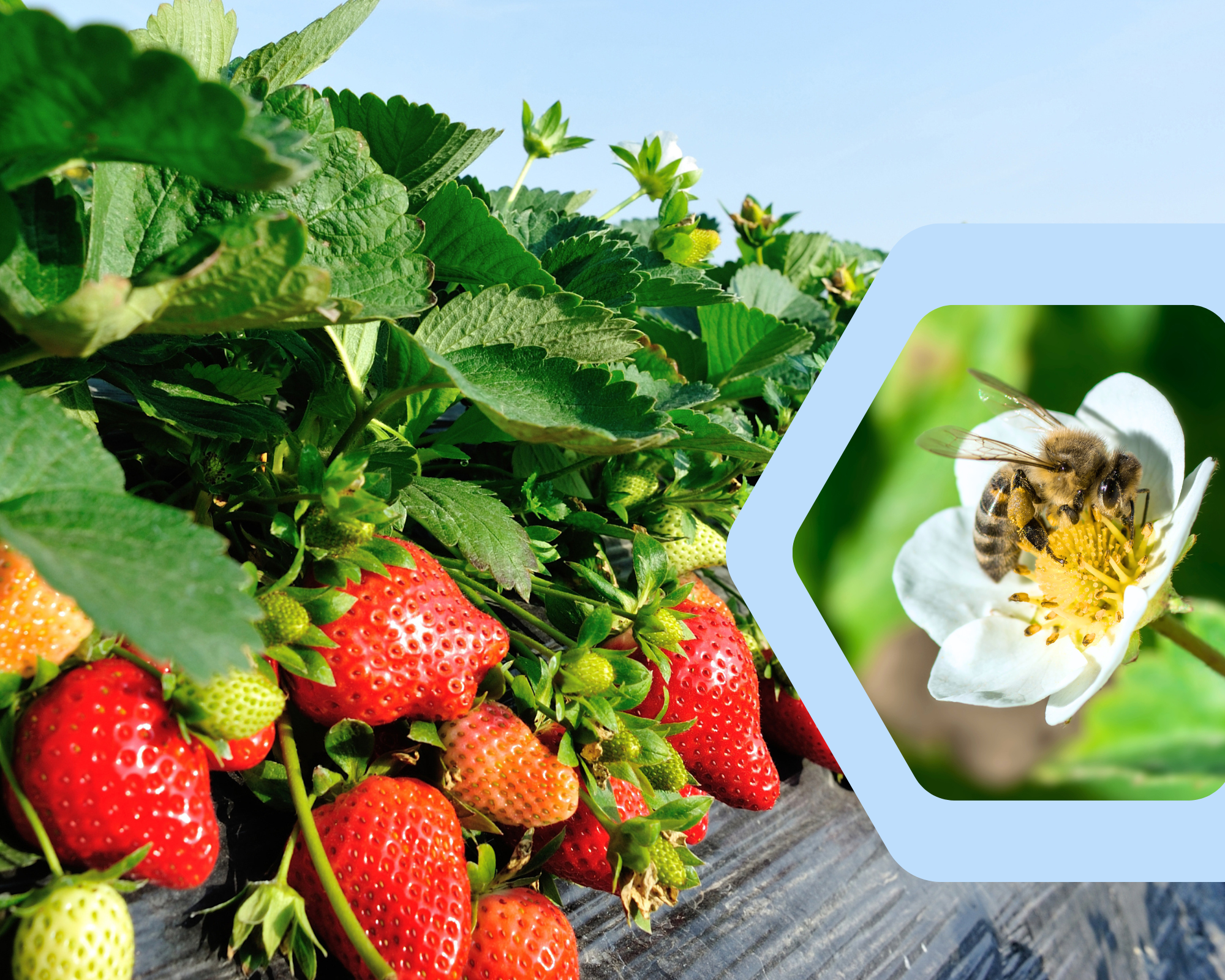While the UK produces 50 percent of domestic vegetables, the fruit sector lags at a staggering 16 percent. This growing reliance on imports for vital micronutrients, such as vitamin C, poses a critical challenge to supply chain resilience.
Strawberries stand out as a top contender among the selection of soft fruits grown in the UK. They are palatable and easy to consume compared to other fruit, having therefore a broader appeal across demographic groups, especially for children and the elderly.
However, local production is faced with numerous challenges, for example fruit yield and quality are closely linked to pollination levels in cultivation areas, which can be inconsistent.
A 24-month early-stage project, funded by Innovate UK, aims to optimise novel acoustic sensors to precisely monitor pollinator activity in strawberry farms and develop tools to modify pollinator behaviour. The work will support farmers to grow higher quality produce, with improved nutritional profiles as well as an extended shelf life.
Leading the consortium is Crop Health and Protection (CHAP) in close collaboration with AgriSound, PheroSyn, Biobest UK and NIAB.
The project will further develop AgriSound’s innovative acoustic sensor technology to monitor pollinator activity in strawberry farms. This will enable farmers to detect areas of high or low pollinator activity which could negatively impact the strawberry crop.
Casey Woodward, CEO and founder of AgriSound, said: “Being involved in this groundbreaking project, using our latest agri-tech to benefit the crucial food supply chain of fruit in the UK, is really exciting for AgriSound.
“Our groundbreaking ‘Polly’ bioacoustic insect listening devices, increasingly, are being widely deployed to monitor pollinators and other insects for precision pollination, significantly enhancing crop yield and reducing the costs of food production. Alongside our work in conservation and provision of data for ESG reporting, we’re proud the Polly can help to protect nature and crops essential to human life.
“This project won’t only benefit British strawberries and pollinators but will also enable us to further develop our algorithms for even more accurate data reporting, giving us a stronger opportunity than ever to conserve essential biodiversity.
“Work will also focus on developing tools to influence bumblebee behaviour, facilitating a precise and strategic pollination approach by redirecting insect activity from areas with excessive pollination to those with insufficient pollination.”
Dr Mary Ellis, CEO at PheroSyn, added: “We are excited to be working with pheromones in controlled environments, which has been a long-term goal of the company.
“Collaborating with AgriSound’s acoustic technology and environmental sensors will help us understand and measure the influence we can have on insect communication using pheromones.”
These technologies will be trialled at NIAB to investigate their efficacy and the effect of pollination on strawberry quality, nutritional content and shelf life.
Dr Victoria Nash-Woolley, Sector Lead at CHAP, said: “Strawberries are one of the most commercially important soft fruit crops in the UK, with an estimated production value of approximatively £350 million. Yet, crop yield and quality are highly dependent on insect pollination which is inconsistent in growing areas. In addition, there is a current lack of tools that can actively monitor pollinator activity and modify their behaviour in real-time.
“Throughout this project, together with the consortium partners, we aim to develop the much-needed tools to address current technology gaps, which will ultimately boost British strawberry production, reducing the reliance on imports and increasing the UK’s sustainability journey.”
This project is funded by Innovate UK through the ‘Better Food for All: Innovation for improved nutrition, early-stage’ competition.
For more information about this project, contact CHAP at enquiries@chap-solutions.co.uk.












